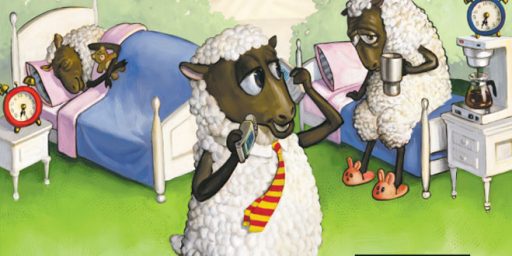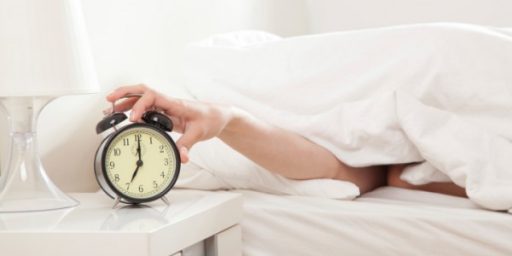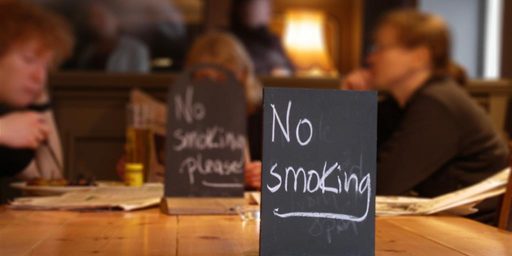Too Much, Too Little Sleep Bad for You
Unless you sleep exactly the right amount, you are doomed, a new government study finds.
People who sleep fewer than six hours a night — or more than nine — are more likely to be obese, according to a new government study that is one of the largest to show a link between irregular sleep and big bellies.
The study also linked light sleepers to higher smoking rates, less physical activity and more alcohol use.
The research adds weight to a stream of studies that have found obesity and other health problems in those who don’t get proper shuteye, said Dr. Ron Kramer, a Colorado physician and a spokesman for the American Academy of Sleep Medicine. “The data is all coming together that short sleepers and long sleepers don’t do so well,” Kramer said.
The study released Wednesday is based on door-to-door surveys of 87,000 U.S. adults from 2004 through 2006 conducted by the National Center for Health Statistics, part of the Centers for Disease Control and Prevention.
Such surveys can’t prove cause-effect relationships, so — for example — it’s not clear if smoking causes sleeplessness or if sleeplessness prompts smoking, said Charlotte Schoenborn, the study’s lead author. It also did not account for the influence of other factors, such as depression, which can contribute to heavy eating, smoking, sleeplessness and other problems.
In other words, this is what social scientists refer to as “a completely worthless study.” Your tax dollars at work.






Such surveys can’t prove cause-effect relationships, so — for example — it’s not clear if smoking causes sleeplessness or if sleeplessness prompts smoking, said Charlotte Schoenborn, the study’s lead author.
Is this a joke? Any chemist, doctor, or smoker will tell you what late-night cigarettes can do to one’s ability to sleep. It’s possible that there is some causality that runs in the opposite direction (exhausted people less capable of resisting temptation) and that they are both caused by a third source, but one component (I’d say the most significant component) is very well known.
Sure. And drinking too much alcohol can disrupt one’s sleep, too. The problem is that the opposite can be true, too: You’re unable to sleep, so you drink alcohol to help you get drowsy. Or you’re up and have more cigarettes than you would if you were asleep.
By raising more questions the authors of the study have clearly laid the groundwork for asking for more money to study this further.
I think we can all see a pattern emerging in modern research and funding. The less you answer the more funding you need.
Did the study speak to how often someone smokes? I thought it focused on whether they do or don’t smoke. It’s certainly true that if you’re up for 20 hours a day instead of 17 that you will likely smoke more cigarettes.
In any case, this is exceptionally obvious stuff.
On the other hand, I am a firm believer that there is a cause/effect relationship of sleep deprivation and obesity. I further think that much of it is metabolic rather than simply eating more because you’re awake more.
ooooohhhh…yaaaaawwwwnnnnnn… jeez i’m tired…. why can I never get enuf sleep?